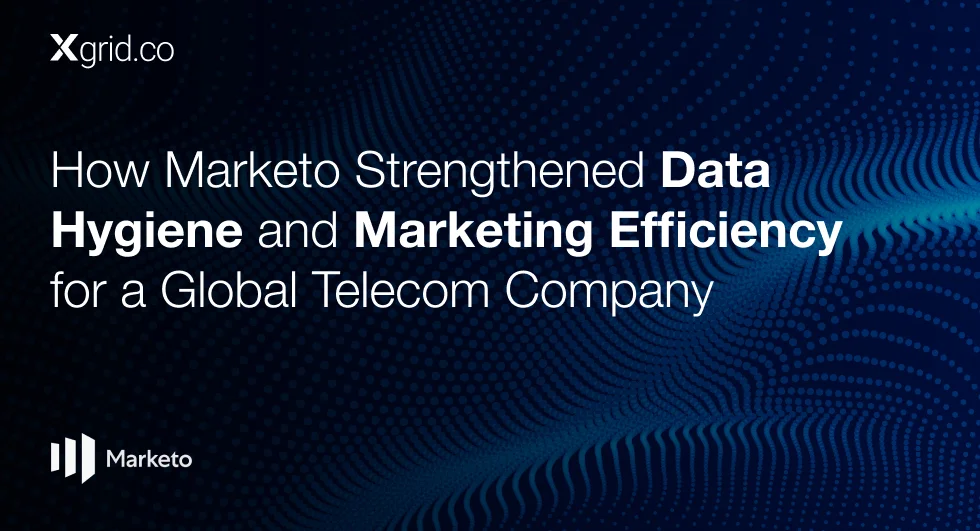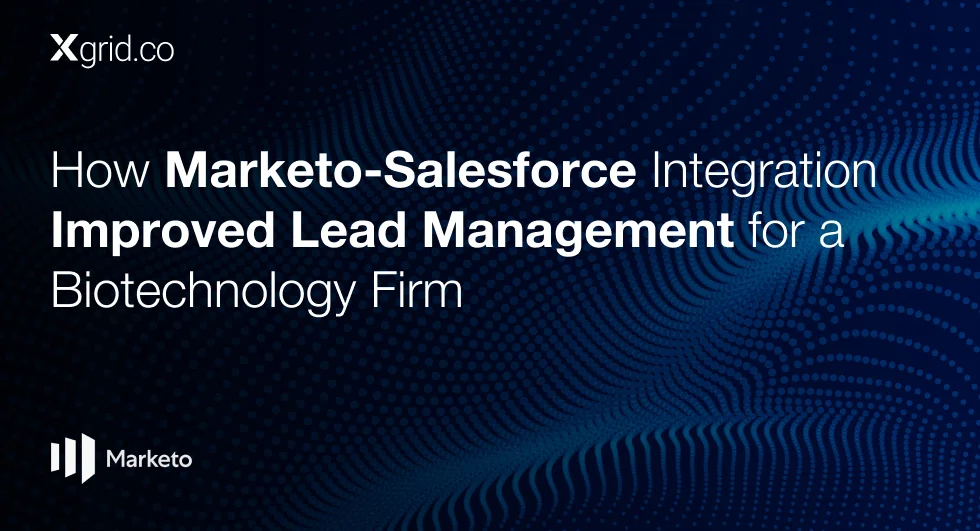Evolution of Marketing Automation: A Journey from Early Tools to Market Leaders
Having worked with key tools like Marketo, Eloqua, and HubSpot, Amy provides invaluable insights into how these platforms have developed and how businesses can best leverage them today. This article draws on her extensive experience, offering a comprehensive look at the capabilities, strengths, and challenges of each tool, particularly in the early days of their adoption.
How Marketo Changed the Landscape of Marketing Automation
Marketo emerged at a critical time when businesses were grappling with how to automate their marketing processes, primarily focused on email marketing.
When Amy first encountered Marketo in the mid-2000s, the company was small, and marketing automation was in its nascent stages.
However, Marketo quickly became a game-changer for businesses looking to manage lead scoring and email campaigns effectively.
“I worked with their first sales guy,” Amy recalls, illustrating just how early she was involved with Marketo.
Her team initially adopted the tool to replace a problematic system called Loop Fuse. The switch to Marketo allowed them to experiment with the then-new concept of lead scoring.
“Lead scoring was a kind of brand-new idea back then,” she explains, highlighting how revolutionary Marketo was for the industry.
This early adoption experience was instrumental in demonstrating Marketo’s intuitive interface and its capacity to grow with companies.
By allowing users to manage email marketing and lead scoring in one place, Marketo empowered marketers to implement more sophisticated strategies without the need for highly technical expertise.
Amy notes, “Marketo was easier to use, and you could hand it off to a junior marketer.”
Marketo, Eloqua, and HubSpot: A Comparative Analysis of Marketing Automation Giants
While Marketo was a key player in Amy’s marketing journey, it wasn’t the only tool she used. Her experience spans multiple platforms, including Eloqua and HubSpot, offering a rare perspective on how each of these systems performs across different use cases.
Marketo: A Tool Built for Growth and Simplicity
Marketo’s strength lies in its ability to handle complex marketing automation tasks without burdening users with unnecessary complexity. “I’ve always been a Marketo over Eloqua fan,” Amy says, underscoring the platform’s user-friendly interface and robust functionality.
With Marketo, businesses can handle lead scoring, email campaigns, and even integrations with tools like Salesforce, making it an ideal choice for mid-market companies.
The platform’s flexibility is a key factor that sets it apart. Amy recounts her experience managing lead lifecycle processes and building lead scoring systems, noting that Marketo’s intuitive design makes it accessible even to less experienced marketers.
This accessibility allows businesses to scale their marketing operations without requiring a large, specialized team.
Eloqua: Power Comes with Complexity
Eloqua, on the other hand, offers immense power but comes with a steep learning curve. “Eloqua was incredibly powerful, but the amount of steps to do things made it complicated,” Amy explains.
While Eloqua’s depth of functionality is impressive, it’s not always practical for companies without dedicated marketing operations teams.
One of the challenges Amy faced with Eloqua was onboarding junior marketers. “You couldn’t take this tool and go to a junior marketer and say, ‘Go run an email campaign.’ It was far too complicated for that,” she recalls.
This complexity, coupled with Oracle’s acquisition of the platform, led to Eloqua’s decline in popularity, especially among mid-market businesses.
Today, Eloqua remains a viable option for large enterprises with the resources to manage its intricacies, but for most companies, it’s not a practical choice.
HubSpot: Closing the Gap with Marketo
Though initially viewed as less sophisticated, HubSpot has made significant strides in recent years. Amy acknowledges this progress, particularly in its ease of use and marketing automation capabilities.
“HubSpot has come a long way,” she says, although she remains critical of its lead scoring model, which she believes still lags behind Marketo.
One of HubSpot’s major advantages is its integration with Salesforce, which helps close the gap in terms of automation and CRM functionality.
While Amy prefers a Marketo-Salesforce stack for most businesses, she recognizes HubSpot’s appeal for companies looking for a more streamlined, user-friendly solution.
“I still prefer a Marketo and Salesforce stack over a straight HubSpot stack,” she notes, but adds that HubSpot’s recent improvements make it a strong contender for businesses with simpler needs.
Lead Scoring: Why Marketo Still Leads the Pack
One of the areas where Marketo consistently shines is lead scoring. For businesses looking to implement a robust lead scoring system, Marketo remains the tool of choice. “I find Marketo is far better suited to doing lead scoring properly,” Amy asserts.
While HubSpot has made progress in this area, its model is still less effective for companies with more complex lead qualification needs.
The ability to track and score leads based on behavior, demographics, and engagement is critical for businesses looking to optimize their marketing efforts.
Amy’s experience setting up lead scoring in Marketo allowed her to implement a structured approach that helped drive more qualified leads through the sales pipeline.
The Future of Marketing Automation: What’s Next?
As marketing automation continues to evolve, the key challenge for businesses will be choosing the right tools that align with their needs. For Amy, the decision often comes down to the specific requirements of the company, including its size, technical resources, and growth objectives.
For mid-market companies and enterprises looking for a powerful, scalable solution, Marketo remains a top contender.
Its ability to integrate with CRM systems like Salesforce and handle complex lead scoring processes makes it an ideal choice for businesses looking to scale their marketing operations.
However, for companies that prioritize ease of use and simplicity, HubSpot’s improvements make it a viable alternative.
Ultimately, the choice between Marketo, Eloqua, and HubSpot depends on balancing power with usability.
As Amy notes, “At the end of the day, it’s about finding the right balance between power and usability.” This insight is critical for businesses looking to implement or optimize their marketing automation strategy, ensuring they choose a tool that aligns with both their current capabilities and future growth.
Conclusion: A Balanced Approach to Marketing Automation
The evolution of marketing automation platforms like Marketo, Eloqua, and HubSpot offers valuable lessons for today’s businesses. Marketo’s intuitive interface, combined with its powerful lead scoring and marketing automation capabilities, makes it a standout option for mid-market businesses.
Eloqua’s complexity may limit its appeal to larger enterprises, while HubSpot’s recent improvements position it as a strong alternative for smaller teams.
The key is to select a marketing automation tool that aligns with your company’s needs and resources.
Whether that’s Marketo’s robust lead scoring or HubSpot’s simplicity, the right choice will depend on your business goals and the level of expertise within your marketing team.
Downloads
Article (PDF-276 KB)MOST POPULAR INSIGHTS
- How Marketo Strengthened Data Hygiene and Marketing Efficiency for a Global Telecom Company
- How Marketo-Salesforce Integration Improved Lead Management for a Biotechnology Firm
- How a Tech Company Used Marketo to Refine ABM Strategies for Sales Engagement
- How Marketo Campaigns Were Streamlined with Templates and Tokens
- How Marketo Solidified Marketing Insights with Custom Attribution Models
Related Articles
Related Articles

Established in 2012, Xgrid has a history of delivering a wide range of intelligent and secure cloud infrastructure, user interface and user experience solutions. Our strength lies in our team and its ability to deliver end-to-end solutions using cutting edge technologies.
OFFICE ADDRESS
US Address:
Plug and Play Tech Center, 440 N Wolfe Rd, Sunnyvale, CA 94085
Dubai Address:
Dubai Silicon Oasis, DDP, Building A1, Dubai, United Arab Emirates
Pakistan Address:
Xgrid Solutions (Private) Limited, Bldg 96, GCC-11, Civic Center, Gulberg Greens, Islamabad
Xgrid Solutions (Pvt) Ltd, Daftarkhwan (One), Building #254/1, Sector G, Phase 5, DHA, Lahore




